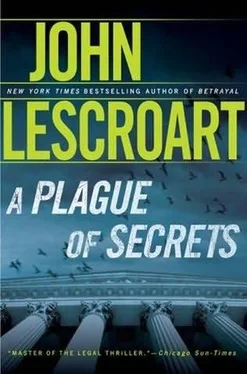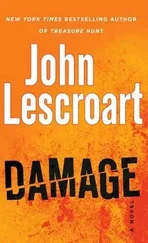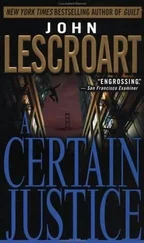“You mean Saturday morning?”
“Yes.” She closed both eyes, trying to regain her composure. “I went into the alley and saw him. He was already dead.” Meeting Hardy’s eyes, she went on in a rush. “I didn’t know what I should do, other than I knew I didn’t want to be there. I got back in the car and left. I mean, there was nothing I could do for Dylan. That was obvious. But then, when the police came to question me at my house, I told them I’d been at Mass, which is where I did go afterward, except I was very late, after communion, and somebody might remember that. And then I thought, what if somebody had seen me and they described me or my car to the police?”
Hardy let her sit with her words for a moment. Then, “What was the emergency?”
“He didn’t say. Just that he had to see me.”
“In person?”
“I know. I didn’t know what to do with that-it didn’t seem to make much sense-but it was the first time he’d ever called with a message like that, and I thought I ought to go.”
Hardy placed his wineglass onto the small table in front of him. Suddenly things had turned serious. She had lied to the police about her alibi for the time of a murder. Her reason for wanting him to represent her in the event of another interrogation was now not only rational but powerful. Given a lack of other quality suspects, that fact alone might be enough to give her prominence in their investigation.
Whether or not she was politically connected.
“Plus,” she went on.
He waited.
“If they check his phone records-and I guess they do that, don’t they?-they’re going to find out he called me, and they’ll want to know about that, won’t they?”
Hardy shrugged. “He managed your store. That wouldn’t necessarily be incriminating.” He sat back again. “How about this? When Bracco calls again, if he does, let me know right away and we’ll see what he wants to talk about and then decide if we’d be well served by telling him you were there. If not, we won’t. How’s that sound?”
She attempted a shaky smile. “A little scary, really. I just want this to go away. Not have Joel and the kids have to find out the way I was.”
“I don’t know,” Hardy said, finally getting up, taking one of his business cards out of his wallet, and handing it to her. “People surprise you. They might all understand and then you’d never have to worry about it again. And, you know,” he added, “we were all in college and not all of us were saints. Maybe not even Joel.”
Shaking her head, she said, “You don’t know him.” She’d followed him up and now crossed over to his desk, taking her own wallet from her purse. “I’m afraid Harlen didn’t mention what this would cost. Do you bill me or do I pay as I go?”
“Whatever you’d prefer,” Hardy said, willing in this case to break one of the major rules of defense law, which was get your money up front. But Maya was Harlen’s sister and he thought a little professional courtesy wouldn’t be out of order. Going to the file drawer behind his desk, he withdrew his standard contract and handed it over to her.
She scanned it quickly. “How does three thousand sound as a retainer?” she asked, opening her checkbook.
“That’ll probably get you a refund when this is over,” he said.
She handed him the check, and then they were standing facing each other by the office door. “So it’s okay. I can call you?” she asked.
“Anytime, day or night.” He pointed at the card. “All the numbers in the world where I can be reached.”
The gratitude flooded back into her eyes. “Thank you,” she said.
And he opened the door to let her out.
About twenty minutes later Hardy picked up the phone on his desk.
“Yo.”
“Yo yourself.” The voice of his partner Wes Farrell. “What are you doing?”
“When?”
“Right now.”
“Many things all at once,” Hardy said. “Breathing, talking to you, figuring out our talented pool of associates’ utilization numbers for the third quarter. Why?”
“Because I wondered if you might have a minute.”
“Are you upstairs?” Wes worked alone on the third floor one level up, in an office that had once in a different world been Hardy’s. “You could always just come on down like you usually do.”
“I could, but then I’d have to pass the Phyllis test and I don’t know if I’m up to it.” Hardy heard something in the voice. Wes was nearly always upbeat, but he wasn’t now. “If I’m really not interrupting you at something important, you want to come up for a minute?”
“Sure,” Hardy said. “I’m on my way.” As he passed the reception area, Phyllis raised her eyebrows and attempted a smile that nevertheless seemed somehow accusatory. Hardy pointed upward. “Just going to see Wes,” he explained. “Firm business.”
This was the password, he knew. Hardy was doing what she thought he ought to be doing, managing the firm. Phyllis graced him with an approving nod and swirled back to face her switchboard. Over the years Hardy had developed a faint and grudging affection for his receptionist/secretary, but as he mounted the stairway at the far end of the lobby, he wondered how sad he would actually be if she were, say, mercifully and swiftly executed by a large truck running a red light.
Farrell’s door, festooned with left-wing bumper stickers, yawned open and Hardy knocked once before crossing the threshold. The office, such as it was, gave only the merest nod to the legal work Farrell supposedly did there. No desk, no files, just a couple of couches, a coffee table, some random easy chairs, a flat-screen TV on one side wall, a Nerf basketball hoop on another, a library table with more functional wooden chairs scattered roughly around it. One of the chairs was on its side at the moment.
Gert, his dog, slept in a corner.
In another corner by one of the windows Farrell did have a modern computer he never turned off, and he was sitting at that now, though facing away from it and toward him as Hardy came in. As usual when he wasn’t going to court, Wes wasn’t dressed much for success. Today he wore a pair of wrinkled tan Docker pants and wingtips that hadn’t been shined since Watergate. And of course he sported his usual T-shirt, which today took Hardy more than the usual quick glance to read: “Haikus can be easy./But sometimes they don’t make sense./Refrigerator.”
Hardy had to break a smile, pointing to it and saying, “That might be one of the best.”
Farrell looked down. “Yeah. I thought it’d get Sam laughing, but no.”
“You guys okay?”
The shoulders rose and fell. “We’ll probably get over it. I hope so.”
“What?”
“This stupid argument. Or maybe not so stupid if it might really break us up. Which I’m starting to think it’s got a chance.”
“What about?”
Farrell rolled his eyes. Sitting in his ergonomic chair, he slumped. His thick brownish-gray hair was unsecured and fell all around to the top of his shoulders. Hardy thought he looked about twenty years older than he was. “She thinks I don’t care enough about the homeless.”
“What about the homeless?”
“We shouldn’t tell ’em it’s cool to come here and then start making them go to shelters and stuff. We should respect them as individuals. Jesus. That’s how it started, anyway. Now it’s all she’s not sure she knows who I really am or if she still wants to be with me.”
Normally, Hardy would have asked why she wanted to be with him in the first place, but this wasn’t the time. So he asked, “Because why, exactly?”
“I think in the last fight, I used the word vagrant , or maybe bum. Or maybe both. I probably did both, knowing me when I’m arguing. Anyway, somehow I betrayed my terminal insensitivity to the plight of…” He gestured in little circles with his hand. “Et cetera, et cetera.” Farrell let out a long breath. “I don’t know what I’m talking about, Diz. And that’s not it, anyway. What I wanted to see you about.”
Читать дальше












